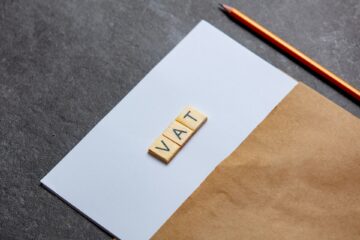The Thailand Business Visas Guide for SMEs: Simplify the Process with Plizz
As globalization continues to reshape the world’s business landscape, SMEs in Thailand must be prepared to operate in an increasingly international context. Securing business visas for foreign employees, partners, or investors is an integral part of this process. However, navigating the complexities of the Thai business visa system can be daunting, particularly for SMEs that lack the experience or resources to manage the process independently.
In this blog post, we present a step-by-step guide for securing business visas in Thailand, tailored for SMEs. Our objective is to provide clear and concise information, helping you understand the requirements and procedures to successfully obtain business visas. Furthermore, we’ll discuss how partnering with Plizz can make this process easier and more efficient, allowing you to focus on your company’s growth and development while we take care of the visa-related challenges. From application stages to document requirements, you’ll find all the essential information here to make your Thai business visa pursuit a seamless experience.
1. Understand the Types of Business Visas in Thailand
To begin with, it’s essential to comprehend the different types of Thai business visas available for SMEs. There are two main categories: the Non-Immigrant Visa Category “B” (for business purposes) and the Non-Immigrant Visa Category “IB” (investment and business).
- The Non-Immigrant Visa Category “B” is for foreign nationals who intend to work in Thailand or manage business operations within the country. This visa type includes conducting business, attending conferences, and participating in training sessions or workshops.
- The Non-Immigrant Visa Category “IB” is specifically designed for foreign investors under the Board of Investment (BOI) privileges. Foreign nationals planning to invest in Thailand or undertake business-related activities must apply for this visa type.
Understanding which category applies to your SME will dictate the application process and requirements for your business visa. For more information on Thai business visa categories, visit the [Thai Ministry of Foreign Affairs website](http://www.mfa.go.th/main/en/services/4908).
2. Prepare the Necessary Documents
Once you’ve determined the appropriate business visa category, it’s time to gather the required documents for your application. For a Thai business visa application, these typically include:
- A valid passport with at least six months’ validity remaining
- A completed Visa Application Form
- Two recent passport-sized photographs
- A Letter of Approval from the Ministry of Labour or the Board of Investment (for Non-Immigrant Visa Category “IB” applicants)
- A letter from the applicant’s employer stating the purpose of their visit to Thailand, the company’s information, and the applicant’s position within the organization
- Supporting documents that provide evidence of the applicant’s professional qualifications and work experience
- Proof of financial means, such as a bank statement or a letter from the applicant’s bank
It’s crucial to remember that additional documents may be required depending on your unique situation and the Thai embassy or consulate reviewing your application. Ensuring that all necessary documents are accurate and up-to-date will help streamline the application process and prevent potential delays.
3. Submit Your Visa Application
Once you’ve gathered the required documents, it’s time to submit your Thai business visa application. You can apply for a business visa at a Thai embassy or consulate in your home country or country of residence.
The exact process for submission may vary from one embassy or consulate to another, so it’s essential to check their specific procedures ahead of time. In general, you’ll need to present your completed application form, supporting documents, and visa fee payment to the embassy or consulate. The fee for a single-entry business visa is typically around $80, while a multiple-entry business visa can cost up to $200.
It’s important to note that Thai business visas are usually issued as single-entry or multiple-entry visas, allowing the visa holder to enter and exit the country during the visa’s validity period. A single-entry visa is valid for three months, while a multiple-entry visa is valid for up to one year, with a maximum stay of 90 days per entry.
4. Obtain a Work Permit
If you’re planning to work in Thailand, you’ll also need to secure a work permit in addition to your business visa. A work permit is a legal document that grants foreign nationals permission to work in Thailand under specific conditions, such as the type of work and duration of stay.
To apply for a Thai work permit, you’ll need to provide additional documents, including:
- Your valid business visa and passport
- A completed Work Permit Application Form
- A medical certificate issued within the past 30 days
- Proof of educational qualifications or professional certifications
- A letter of employment or an employment contract
- Work permit fees, typically around $60 to $200, depending on the duration of the permit
In general, the Thai work permit application should be submitted to the Ministry of Labour or the Board of Investment (for BOI-promoted companies). The processing time for work permit applications can take up to seven business days.
5. Facilitate the Process with Plizz’s Expert Assistance
Navigating the complexities of Thai business visas and work permits can be challenging, especially for SMEs that may lack the resources or experience in handling these procedures. Plizz simplifies the entire process by offering expert visa consultation and processing services tailored to meet the unique needs of your Thai SME.
By working with Plizz, you can focus on growing your business while our professionals expertly manage the visa application process, ensuring accurate document preparation, seamless submission, and timely processing. Our in-depth understanding of Thai regulations enables us to provide comprehensive support, making your business visa experience as efficient and hassle-free as possible.
Conclusion
Obtaining a business visa and work permit in Thailand is a crucial aspect for SMEs operating in the country. By understanding the different visa types, gathering the necessary documents, submitting your application, and obtaining a work permit, your company can confidently navigate the Thai business landscape.
Are you prepared to optimize your Thai SME’s financial management? As a comprehensive accounting company in Bangkok, Plizz offers tailored solutions spanning from accounting and tax management to part-time CFO services, equipping your SME with valuable expertise, tools, and support. Let us help you take your SME to new heights by unlocking the full potential of your financial management capabilities. Reach out to the Plizz team today to learn how our expert financial services can streamline your operations, boost efficiency, and set your business on the path to long-term success!



0 Comments